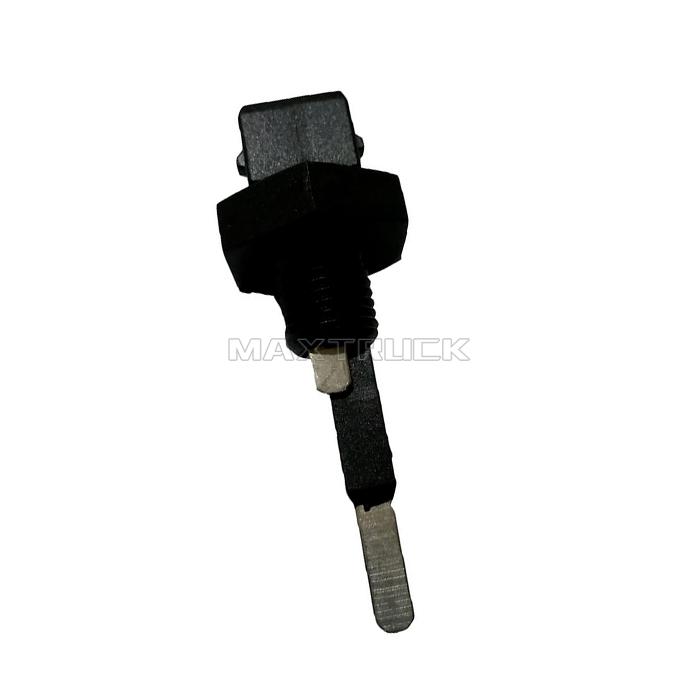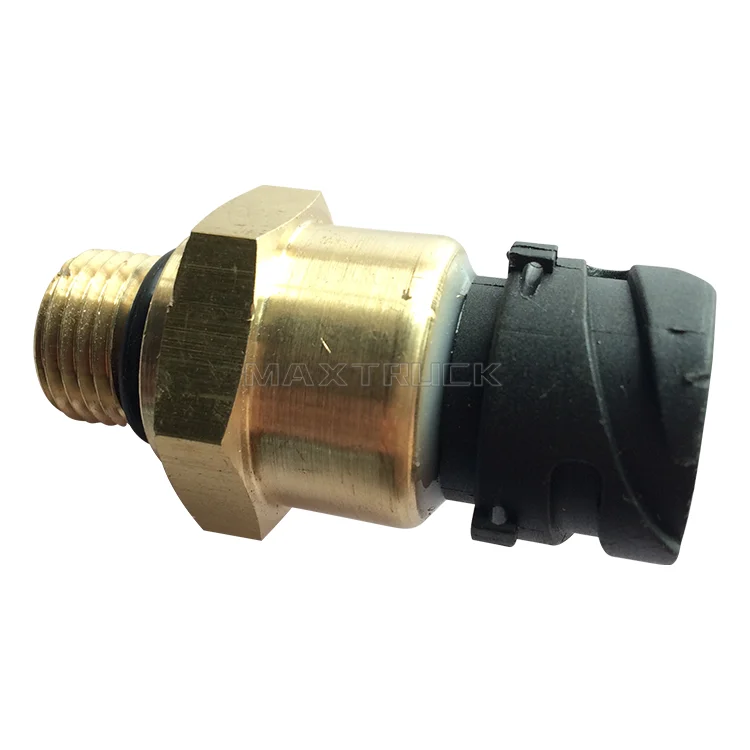News
How Advanced Sensors Are Revolutionizing Truck Maintenance and Performance
In the fast-evolving world of fleet management and transportation, the integration of advanced sensor technologies has become a game-changer for truck maintenance and performance. With trucking being one of the backbone industries of the global economy, ensuring that trucks are operating at peak efficiency is not just a matter of convenience—it’s a matter of profitability, safety, and compliance. Companies like MAXTRUCK are at the forefront of this revolution, using cutting-edge sensor systems to monitor, optimize, and maintain truck fleets in real-time. In this article, we will explore how these advanced sensors are transforming truck maintenance, improving performance, and paving the way for a more efficient, data-driven future in the trucking industry.
The Role of Advanced Sensors in Truck Maintenance
Trucks, particularly heavy-duty commercial vehicles, are complex machines with many moving parts. Keeping them in optimal working condition requires not only routine inspections but also timely identification of potential issues before they become costly breakdowns. This is where advanced sensors come into play. By integrating sensors into various parts of a truck, fleet managers and maintenance teams can gather real-time data about the condition of key components and monitor truck performance more closely.
1. Predictive Maintenance
Predictive maintenance is perhaps one of the most significant benefits of advanced sensor technology. Rather than waiting for a truck to break down and require reactive maintenance, sensors can detect early warning signs of wear and tear. For example, sensors monitoring the engine’s temperature, exhaust gas temperature, or oil quality can identify abnormalities that indicate a potential issue. This allows for scheduled repairs or replacements before a failure occurs, reducing the risk of unplanned downtime.
- Key Sensors for Predictive Maintenance:
- Temperature sensors: Monitoring engine and transmission temperatures to detect overheating.
- Pressure sensors: Used to monitor tire pressure, hydraulic fluid levels, and oil pressure.
- Vibration sensors: Identifying abnormal vibrations in the engine, axles, or brakes.
- Oil quality sensors: Detecting contaminants in the engine oil or a reduction in oil viscosity.
By incorporating these sensors into a truck’s core systems, fleets can proactively address potential issues, extending the lifespan of their vehicles and reducing the cost of emergency repairs.
2. Real-Time Diagnostics and Remote Monitoring
Advanced sensor systems now allow for real-time diagnostics, meaning that fleet managers can monitor truck performance remotely. Sensors placed throughout the vehicle send continuous data to a cloud-based system, which is then analyzed using artificial intelligence (AI) and machine learning algorithms to identify patterns and potential faults. For instance, MAXTRUCK’s fleet management system collects and analyzes sensor data from trucks across a fleet to flag any performance irregularities.
- Real-Time Insights Include:
- Engine health and efficiency
- Fuel consumption rates
- Tire pressure and wear patterns
- Brake performance
- Battery and electrical system status
With access to this data, fleet managers can make informed decisions about when to schedule maintenance, ensuring that each truck is performing at its best and reducing the risk of unexpected breakdowns.
3. Enhancing Fuel Efficiency
Fuel consumption is one of the largest operating expenses for trucking companies. Advanced sensors can optimize fuel efficiency by tracking and analyzing fuel consumption patterns in real time. Sensors that monitor vehicle speed, acceleration, braking behavior, and load weight can provide insights into how a truck is operating, enabling drivers to adjust their behavior to reduce fuel usage.
- Examples of Fuel Efficiency Sensors:
- Speed sensors: Ensuring that trucks maintain optimal speed limits for fuel economy.
- Load weight sensors: Monitoring the weight distribution to ensure the truck is not overburdened, which can affect fuel efficiency.
- GPS and route sensors: Suggesting optimal routes based on traffic data, road conditions, and distance to reduce fuel consumption.
With this data at their fingertips, fleet operators can implement measures to improve fuel efficiency and reduce carbon emissions, contributing to sustainability goals and cost savings.
4. Safety and Compliance Monitoring
The safety of drivers and compliance with regulations are top priorities for any fleet. Sensors play a critical role in ensuring that trucks meet safety standards and regulations set by transportation authorities. For example, sensors can monitor the condition of brakes, tire pressure, and load distribution to ensure that the vehicle is safe to operate. Additionally, modern trucks are equipped with sensors that monitor driver behavior, such as speed, seat belt usage, and drowsiness, which can help prevent accidents.
- Safety Sensors Include:
- Brake performance sensors: Ensuring that the brakes are functioning properly and that the truck is within safe stopping distances.
- Tire pressure monitoring systems (TPMS): Detecting under-inflated tires, which can increase the risk of tire blowouts.
- Driver behavior sensors: Monitoring driver alertness, seat belt usage, and harsh driving patterns.
By providing real-time insights into these critical safety metrics, sensors help fleets stay compliant with regulations such as the Electronic Logging Device (ELD) mandate, ensuring that drivers adhere to hours-of-service rules and avoid violations.

Industry Trends and Insights
The trucking industry is experiencing a profound shift toward data-driven operations, thanks in large part to the advancement of sensor technologies. Here are some key industry trends influenced by these innovations:
1. Shift Toward Autonomous Trucks
Sensors are not only improving the maintenance and performance of traditional trucks, but they are also paving the way for the future of autonomous trucking. Autonomous trucks rely heavily on an array of sensors—such as LIDAR, radar, and cameras—to navigate roads, detect obstacles, and ensure safe operation without human intervention. In fact, research suggests that the autonomous truck market is expected to grow by 20% annually through the next decade, with sensors playing a key role in its development.
2. Fleet Connectivity and Data Integration
Connectivity is becoming an essential feature for modern truck fleets. The ability to integrate sensor data into centralized fleet management platforms is creating a more connected and efficient transportation ecosystem. MAXTRUCK and other fleet management companies are utilizing the Internet of Things (IoT) to allow for seamless data flow between trucks, sensors, and central hubs. This data can be used to streamline operations, manage fuel consumption, optimize routes, and improve overall fleet performance.
3. Sustainability and Environmental Impact
As the world continues to focus on sustainability, advanced sensors are helping trucking companies reduce their environmental impact. Sensors that monitor fuel efficiency, tire pressure, and engine health contribute to reducing emissions and minimizing fuel waste. Additionally, the rise of electric trucks, which rely heavily on sensor technology to manage battery life and optimize energy use, is expected to drive further reductions in the carbon footprint of the trucking industry.
4. Data-Driven Decision Making
The increasing amount of data generated by sensors is shifting the industry toward data-driven decision-making. With access to real-time analytics, fleet operators can make more informed decisions regarding maintenance schedules, route planning, and driver behavior. As a result, fleets are becoming more proactive in addressing issues before they become critical, improving uptime, and enhancing overall operational efficiency.

Conclusion
The integration of advanced sensor technologies is transforming the trucking industry, offering significant benefits in terms of maintenance, performance, safety, and compliance. As fleet operators continue to adopt sensor-driven solutions, the industry will see a reduction in downtime, lower operational costs, and an overall increase in efficiency.
MAXTRUCK
is committed to leading this revolution by providing innovative sensor-based solutions that empower fleet operators to make smarter, data-driven decisions. With predictive maintenance, real-time diagnostics, and enhanced safety features, sensors are ensuring that the trucks of tomorrow are more reliable, efficient, and sustainable than ever before.
As the trucking industry continues to evolve, the role of sensors will only grow in importance, shaping the future of transportation and redefining what it means to run a modern, efficient fleet.

